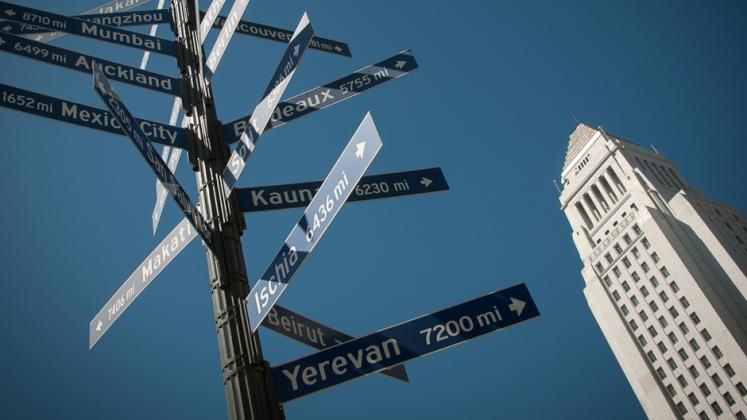International relations are facing an unparalleled crisis, both globally and regionally. This is a consequence of the crisis of multilateralism, which emerged before the COVID-19 pandemic, as well as the impasse of regional integration processes — ranging from Brexit to Latin American regionalism.
In the history of international relations, “other voices” have emerged consistently. For example, proposals with a bottom-up perspective, such as a public persona claiming a particular right, or a civil society organisation tending to internationalise itself through multicultural change, or actions from non-central governments trying to position their interests on the global agenda, among other “alternative” angles of international relations.
The COVID-19 outbreak made it clear that pandemics don’t recognise borders and, also, that global risks produce strong national and local rallies. But, at the same time, we need to recognise that crises such as natural disasters or armed conflicts, have impacted international cooperation frameworks, creating new ones, fostering adaptation, or questioning their existence. Ideological differences, absence of national leaderships (although it would be more correct to say among central authorities), emergence of nationalism, and the general feeling of “it’s every man for himself” —particularly in the field of vaccine geopolitics — requires to search and identify strongholds where international cooperation remains and subsists.
In this context, paradiplomacy has gained momentum. The international policy of local governments has allowed exchanges of inputs on sanitation through pre-existing town twinning agreements, as well as the consolidation of collaboration platforms through different networks to dialogue and share good practices, particularly focused on essential public services and local economy, among others. At the same time, paradiplomacy has been key in some countries sceptical about the coronavirus, such as Brazil or Mexico, in defending local interests of non-central governments facing the pandemic.
Sister cities and networks of local authorities seem to be the winners within paradiplomatic activities from the beginning of the pandemic.
Some networks such as United Cities and Local Governments, C40, Metropolis, Eurocities, or Mercociudades, among others, were adapted to offer a policy menu to address COVID-19, based on local experiences. The proactivity of these networks has been analysed by different actors from the international cooperation system, academic institutions, and private sector. At the same time, this issue reflects the relative international disarticulation among central governments, fostering local authorities to define policies for tackling the pandemic and mitigating its effects.
Sister cities and networks of local authorities seem to be the winners within paradiplomatic activities from the beginning of the pandemic. But the question is: What else can we expect? Or where can we direct this accumulated capital regarding lessons learned and best practices implemented by local and regional authorities?
The post-pandemic world, probably with higher rates of inequality, claims to strengthen public leaderships at all levels. It suggests considering local capacities of civil servants; developing new capabilities related to crisis and risk management and prospecting, and strengthening negotiation, articulation, and communication capacities to reach public-private agreements. It is a unique opportunity to rethink people's livelihoods on a local/regional scale in the context of highly criticised globalisation.
It is essential to overcome the theoretical discussions and build consensus on the concept [of paradiplomacy]: the international action of non-central governments...
Paradiplomacy allows channeling diverse public leaderships that manage to build greater consensus. Public leadership is not only political, but also multi-actor and multi-directional, under a dialectical thought — as the Latin American and Caribbean Institute for Economic and Social Planning suggests — which respect and enhance knowledge, capabilities, and values. Paradiplomacy contributes to a multi-stakeholder dialogue and goes along with the appearance of new territorial leaders, strengthening od situated social capacities and mobilisation of resources to localise the Sustainable Development Goals.
However, it is urgent to overcome the phase of identifying good practices, and, above all, provide local authorities with better technical arguments to enhance their political-strategic discourses on why it is appropriate to upgrade paradiplomacy. Likewise, we need a paradiplomacy that is more endogenous, with participatory planning, and less reactive and/or influenced by exogenous factors.
The current international scenario, and the role of paradiplomacy in response to the pandemic, is an opportunity to foster its validation, reflection, and strengthening. It is essential to overcome the theoretical discussions and build consensus on the concept: the international action of non-central governments and, based on this, carefully analyse their support for the performance of local/intermediate governments, for the reduction of asymmetries and the professionalisation of public officials who work in the matter, as well as the consolidation of multi-stakeholder alliances to reorder collective life. Regarding professionalisation, research centres and academic institutions play an important role on developing and scaling relevant content on paradiplomacy, as well as creating and/or strengthening networks for the promotion of knowledge sharing (epistemic communities). Finally, paradiplomacy will always be useful if it manages to contribute to effectiveness and quality in the process of governing a territory democratically.
•••
This article was first published by the UNU Institute on Comparative Regional Integration Studies, Connecting Ideas blog.
Suggested citation: Nahuel Oddone. "Paradiplomacy: An Opportunity to Strengthen Public Leadership in the Time of COVID-19," United Nations University, UNU Centre, UNU-CRIS, 2021-08-19, https://unu.edu/article/paradiplomacy-opportunity-strengthen-public-leadership-time-covid-19.


